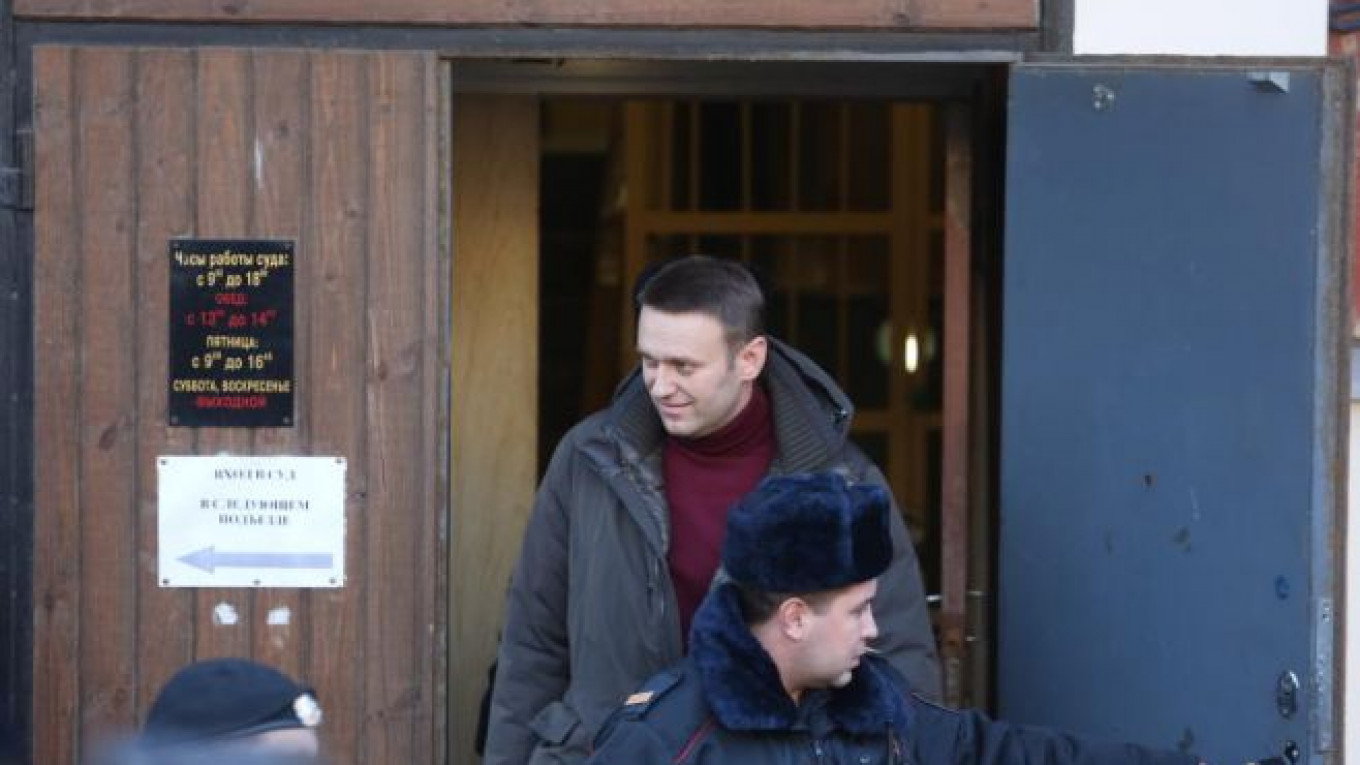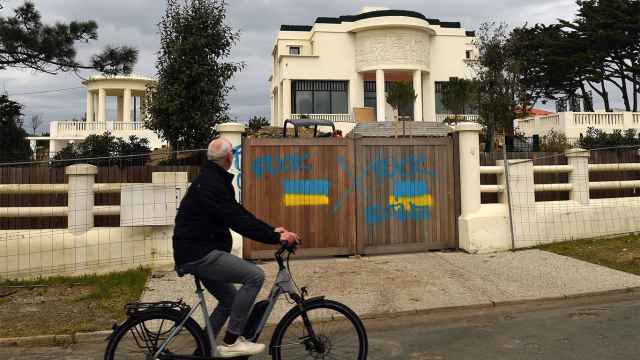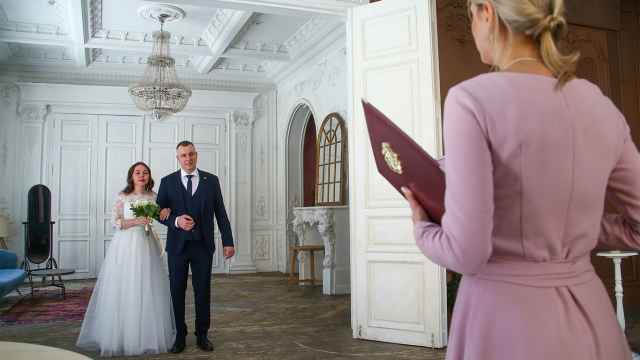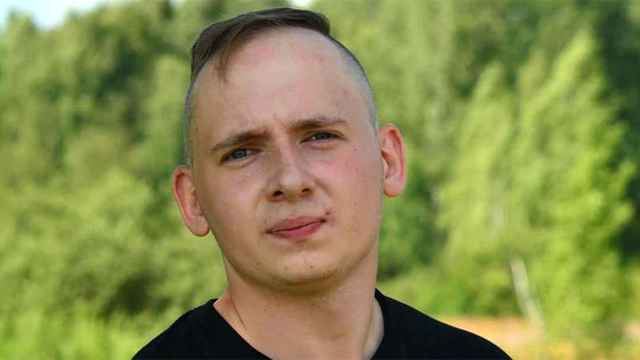A Moscow court on Friday put opposition leader Alexei Navalny under house arrest, triggering concerns among opposition activists that the Kremlin is renewing a crackdown on dissent after the end of the Sochi Olympics.
Navalny, who has been under court-ordered travel restrictions for months, will be under house arrest at least until April 28 in connection with a fraud case opened in 2012 against him and his brother Oleg. The opposition has argued that the case, as well as several other cases against Navalny, are politically motivated.
The ruling came as the protest movement opposing President Vladimir Putin has subsided, with analysts arguing that any repressive measures taken by the Kremlin will not trigger widespread discontent.
Navalny will not be allowed to use any means of communication with the outside world, including mail and the Internet, according to Friday's ruling by a Basmanny District Court judge. Investigators argued that this would prevent the politician from disrupting the investigation.
But Navalny said a different motivation stood behind the measure.
"The only purpose of this decision is to prevent my political activities and anti-corruption investigations," Navalny said.
He said another purpose of investigators' actions was to thwart the participation of his supporters in the next Moscow City Duma election, scheduled for September.
After hearing the court's ruling, Navalny was defiant, saying that he "would continue to fight with [Putin's] occupation government."
Under the terms of the house arrest, Navalny will also be prohibited from speaking to anyone other than his relatives. The opposition leader argued that he needed to communicate with employees of his Anti-Corruption Fund to perform his work, but investigators disagreed, saying that some employees of the fund were witnesses in criminal cases against Navalny.
Investigators said they did not object, however, to his mother-in-law coming to his apartment, to which Navalny quipped: "This will be my mother-in-law's triumph if she is the only one able to enter my apartment." He said he would not even be able to speak to plumbers, neighbors or his children's nanny.
One reason cited by investigators for putting Navalny under house arrest was his seven-day detention he began serving this week for allegedly disobeying a police officer at an unauthorized rally in support of political prisoners on Monday. The opposition leader said his arrest was illegal since he complied with the officer's demands, and requested that the court watch a video of his detention, but the request was denied.
The investigators also said that he had violated his travel restrictions by having gone outside Moscow. But Navalny said they had allowed him to travel to the Moscow region provided that he inform them about his movements, which he said he had. He said investigators had later changed their mind about his travel restrictions and called their accusations "absurd."
Navalny, known for his sense of humor even during judicial proceedings, joked that "the Federal Security Service's counterintelligence department had done a lot of work" to find out such "egregious violations" as his visit to his father in an intensive care unit in the Moscow region or his rental of an all-terrain vehicle for recreation.
But the judge rejected most complaints filed by the defense and refused to recuse himself after the defense argued that he could be biased in the case, noting that Navalny had once filed a complaint against him.
The court's decision is unlikely to trigger large-scale protests because house arrest, as opposed to imprisonment, is not seen by many people as a draconian measure, said Alexei Makarkin, a deputy head of the Center for Political Technologies think tank.
About a hundred people rallied on Saturday on Manezh Square to protest the ruling. Many of the protesters carried stickers with Navalny's name and Russian flags, and at least 27 people were detained.
The house arrest was imposed in connection with a case in which the Navalny brothers are accused of defrauding the Russian branch of French cosmetics firm Yves Rocher out of 26 million rubles ($720,000) and cargo delivery firm Glavnoyoe Podpisnoye Agenstvo out of 4 million rubles. In October, Navalny was also sentenced to a five-year suspended prison term on charges of stealing 16 million rubles from Kirovles, a state-owned timber company. He has been under travel restrictions due to that suspended sentence.
While the ruling to put Navalny under house arrest seemed to indicate a toughening stance by the authorities on his activities, it was also announced Friday that his Progress Party had been officially registered.
The opposition leader said on his LiveJournal blog that the party had finally been registered after two failed attempts. Navalny has previously accused the Kremlin of refusing to authorize his party's creation because of its independent stance.
The authorities are trying to remain flexible and playing a complicated "game" by restricting Navalny's movements but offsetting this by registering his party, Makarkin said.
Contact the author at o.sukhov@imedia.ru






